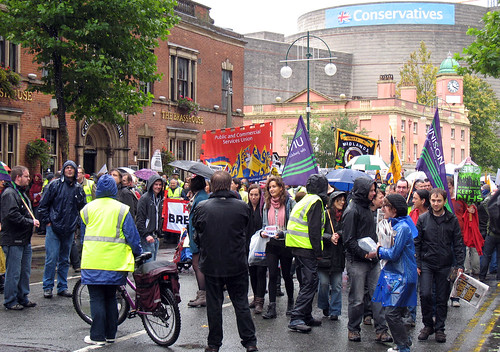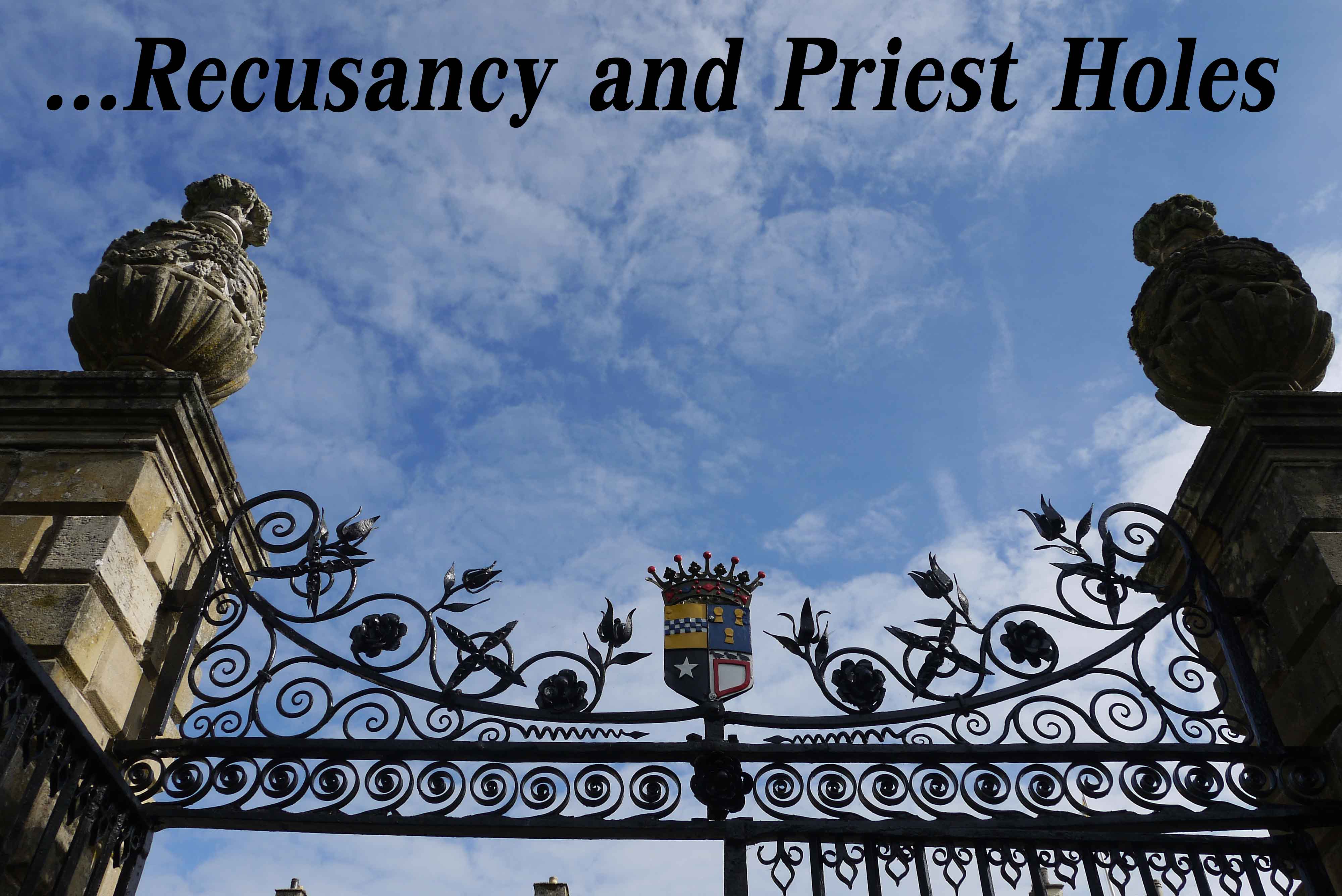 Yesterday as the Conservative party conference got under-way, thousands of people gathered in Birmingham to protest against the proposed public sector cuts and reduced public spending. The weather was decidedly inclement, but the protesters were still determined to get their message across peacefully, but with a strong voice. BBC Birmingham report on the event:
Yesterday as the Conservative party conference got under-way, thousands of people gathered in Birmingham to protest against the proposed public sector cuts and reduced public spending. The weather was decidedly inclement, but the protesters were still determined to get their message across peacefully, but with a strong voice. BBC Birmingham report on the event:
Thousands of people have protested in Birmingham against reduced public spending as the Conservative conference got under way in the city.
Speaking at the rally, Mark Serwotka, of the Public and Commercial Services Union, said strikes were “inevitable” to “turn the tide” against the cuts.
West Midlands Police estimated 5,000 to 7,000 people took part in the protest.
Ahead of the conference, Prime Minister David Cameron urged people to keep the cuts in perspective.
When the crowds got as close to the conference venue as they were allowed, they stopped in the road to make as loud a noise as possible.
The two-hour march passed through Lionel Street, Summer Row, Holiday Street, Gas Street and Broad Street.
In a statement, a spokesman for the Conservative party said: “Everybody has the right to peaceful protest.
“Birmingham is a welcoming city for all – regardless of their political views.”
Supt Dave Sturman, commander for the policing of the Conservative Party conference, said: “We are very pleased with the way the march has gone this afternoon.
“The protesters were peaceful and the operation went largely to plan.
“At this stage there have been no arrests and we have received no reports of any criminal offences, such as damage, as a result of the event.”
The event was organised by ‘The Right to Work‘ and the march was headed by PCS members. Following the event PCS members had the opportunity to share their thoughts with Tory party delegates.
The full BBC article can be viewed here and photos of the event can be viewed here.








In a statement, a spokesman for the Conservative party said: “Everybody has the right to peaceful protest.
And sadly, that’s as far as it will go because they are determined not to budge.
Now Cherie, I’ve been searching for this answer. Any ideas where it is?
The right to a peaceful protest won’t last much longer methinks…
The answer is for the average person from both the left and right to stick together. The people not the elite! Only then can the balance be maintained.
But of course people are people and some want the best for everyone and others only seek the best for themselves…
and so the cycle continues
And where is that answer you were speaking of? Do you have the url so I can see it?
I gave you the answer, the people have to stick together and speak out as one that is the only way to make a change. There is no URL except locked in the recesses of the mind… Or were you referring to my answer to Bernard?
Good morning Cherie,


This is a “thorny subject” me thinks, and I am not sure what the answer is.
I have worked all my life in the private sector. In the 70’s and 80’s I worked for Plessey and when they merged with GEC they found they had too many staff.
I was among thousands to be made redundant.
I then found a job with a firm installing computer controlled, material handle systems. After three years their order books dried up and I once again ‘got my cards’.
I then found myself ‘back on my bike’ and found a job ‘in’ North Sea Oil. (based in London).
After seven years there I could see a future decline looming so this time I took early retirement and got out before the lay-offs.
I totally agree that everybody has ‘The Right to Work’…….but,

and I guess my point is…..should all public sector employees be protected from job loss when there is not enough cash to go round?
I don’t know all the details and I’m not taking sides, I’m….
Just askin’.
Cheers….Bernard
I am not an economist so I don’t really know the answer either but the trade union PCS have come up with alternatives to the cuts and alternative ways to save money.
The problem with the cuts isn’t just that workers lose their jobs it is also about the essential services that will be lost due to the cuts some of which will be needed more than usual due to more people being out of work.
With more people out of work there will be less money around to spend and the cuts will move into the private sector too.
The other problem is that when they say cuts that just means no recruitment so the jobs aren’t necessarily lost from the most sensible areas which leads to problems with delivery of services in some departments.
It is interesting to learn that you worked for the sort of companies I deal every day with at work